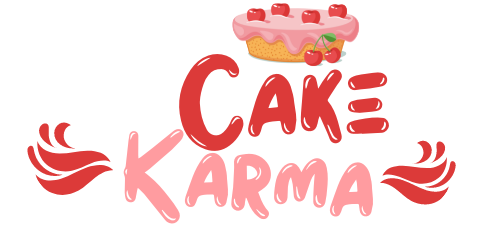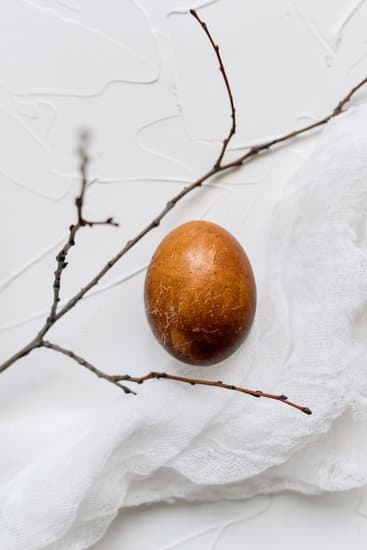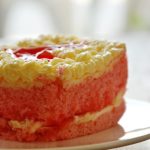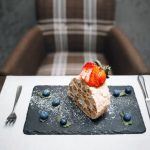Have you ever wondered what education do you need to be a cake decorator? In a world where creativity and design play significant roles, the art of cake decorating has become increasingly popular.
Cake decorators are skilled professionals who specialize in enhancing cakes with intricate designs, shapes, and colors, turning them into edible works of art. With the rising demand for custom cakes for special occasions like weddings, birthdays, and corporate events, the need for talented cake decorators is on the rise.
Cake decorating is not just about making a cake look good; it is also about creating memorable experiences for customers through visually stunning and delicious confections. This specialized skill set requires a combination of artistic flair, precision, and technical knowledge to bring unique cake designs to life. Whether it’s mastering different piping techniques or sculpting fondant figures, cake decorators must possess a keen eye for detail and a passion for creating beautiful desserts that delight and impress.
In this article, we will explore the essential skills needed to thrive in the world of cake decorating, including creativity, attention to detail, and proficiency in various techniques. We will also delve into the different educational paths available for aspiring cake decorators, such as formal culinary school programs, baking and pastry courses, and valuable on-the-job training opportunities.
Additionally, we will discuss the importance of obtaining certifications like the Certified Professional Cake Decorator (CPCD) and staying updated on new trends through continuing education classes. If you have a sweet tooth for creativity and an eye for design, then read on to discover how you can turn your passion for cakes into a rewarding career as a professional cake decorator.
What Is Cake Decorating
Cake decorating is a skilled art form that involves enhancing the appearance of a cake to make it visually appealing. It goes beyond simply baking a delicious cake, as it focuses on adding intricate designs, colors, and textures to create a masterpiece that not only tastes good but also looks stunning. Cake decorators use various tools and techniques to bring their creative visions to life, making each cake unique and personalized for special occasions such as weddings, birthdays, or holidays.
The Importance of Cake Decorating
In the baking industry, cake decorating plays a crucial role in attracting customers and setting businesses apart from their competitors. A beautifully decorated cake can act as the centerpiece of an event, leaving a lasting impression on guests and clients.
Whether it’s a simple design or an elaborate creation, the artistry of cake decorating adds value to the overall product and can significantly impact sales and customer satisfaction. This is why skilled cake decorators are in high demand in bakeries, pastry shops, catering services, and specialized cake decorating businesses.
Artistry Meets Technique
Cake decorating combines artistic talent with technical skills to transform basic cakes into works of art. From piping techniques to fondant sculpting, cake decorators must have a deep understanding of different methods and tools used in the craft.
Attention to detail is crucial in ensuring precision and consistency in designs, while creativity allows decorators to think outside the box and come up with innovative concepts. The ability to work under pressure and meet deadlines is also essential in this fast-paced industry where demand for custom cakes continues to grow.
Aspiring cake decorators who wish to pursue a career in this field should consider obtaining formal education or training to hone their skills and increase their marketability in the industry.
Skills Needed
Cake decorating is truly an art form that requires a unique set of skills in order to succeed in the industry. To become a successful cake decorator, you need to possess a combination of creativity, attention to detail, and knowledge of different techniques. These skills are essential in creating beautiful and visually appealing cakes that not only taste delicious but also look stunning.
Listed below are the necessary skills needed to excel as a cake decorator:
- Creativity: The ability to come up with new and innovative designs for cakes
- Attention to Detail: Being meticulous in every aspect of cake decoration, from intricate piping work to precise fondant sculpting
- Knowledge of Different Techniques: Understanding various cake decorating techniques such as buttercream frosting, fondant modeling, and sugar flower making
Having these skills is crucial for any aspiring cake decorator looking to make their mark in the baking industry. Whether you are working on a simple birthday cake or an elaborate wedding cake, these skills will set you apart and elevate your creations to a whole new level.
In addition to these key skills, having a good understanding of flavor combinations, color theory, and customer service can also be beneficial in your career as a cake decorator. Combined with the right education and training, mastering these skills will allow you to thrive in this competitive field and create delectable works of art that leave a lasting impression on your clients.
Formal Education
Culinary School
One of the educational paths you can take to become a cake decorator is through attending culinary school. Culinary programs provide a comprehensive education in various aspects of food preparation, including baking and pastry arts. These programs typically cover a wide range of topics such as ingredient selection, baking techniques, flavor combinations, and decoration skills. Graduates from culinary schools often have a solid foundation in the culinary arts that can be applied to cake decorating.
Baking and Pastry Programs
Another option for aspiring cake decorators is to enroll in specialized baking and pastry programs. These programs focus specifically on the skills and techniques necessary for creating beautifully decorated cakes and pastries. Students in baking and pastry programs learn about different types of cakes, icings, fillings, piping techniques, sugar work, fondant application, and more. By completing a baking and pastry program, individuals can acquire the specialized knowledge needed to excel in the field of cake decorating.
Apprenticeships
For those who prefer hands-on learning experiences, apprenticeships are another avenue to consider when pursuing a career in cake decorating. Apprenticeships allow individuals to work under the guidance of experienced cake decorators while gaining practical skills in a real-world setting.
This on-the-job training provides valuable experience and insights into the industry that may not be obtained through traditional educational routes. Apprenticeship programs often combine classroom instruction with hands-on practice to ensure a well-rounded education for aspiring cake decorators.
Overall, whether you choose to attend culinary school, enroll in baking and pastry programs, or opt for an apprenticeship, each educational path has its unique benefits that can help you develop the knowledge and skills required to become a successful cake decorator. Additionally, combining formal education with on-the-job training and continuing education opportunities can further enhance your expertise in this creative field.
Certification and Licensing
Becoming a certified cake decorator can set you apart in the competitive baking industry. One of the most recognized certifications is the Certified Professional Cake Decorator (CPCD) offered by the Retail Bakers of America. This certification demonstrates that you have achieved a certain level of expertise in cake decorating, giving potential clients or employers confidence in your skills.
Additionally, some states may require cake decorators to obtain specific licenses to operate legally, especially if running a home-based or commercial baking business. It is crucial to research and comply with any state-specific licensing requirements to avoid any legal issues in your cake decorating career.
In addition to the CPCD certification and state licensing, there are other specialized certifications that can enhance your credibility and open up more opportunities in the cake decorating field. For example, the Wilton Method Instructor certification allows you to teach Wilton cake decorating classes, expanding your reach and potentially increasing your income.
These additional certifications not only showcase your expertise but also provide networking opportunities within the industry. Whether you are just starting your career as a cake decorator or looking to advance further, obtaining these certifications can be a valuable investment in your professional development.
To excel as a certified cake decorator, it is essential to stay updated on industry trends and techniques through continuous education and training. Many certification programs require ongoing renewal or participation in workshops to maintain validity.
By participating in continuing education courses, workshops, or seminars, you can learn new skills, stay current with emerging trends, and continue honing your craft. This dedication to learning will not only benefit you professionally but also keep you inspired and passionate about creating beautiful cakes for your clients.
| Cake Decoration Certification | Description |
|---|---|
| Certified Professional Cake Decorator (CPCD) | This certification demonstrates expertise in cake decorating and can increase credibility in the industry. |
| Wilton Method Instructor Certification | Allows individuals to teach Wilton cake decorating classes, expanding teaching opportunities. |
On-the-Job Training
When pursuing a career as a cake decorator, the value of hands-on experience in a bakery or confectionary shop cannot be overstated. While formal education provides essential knowledge and skills, on-the-job training allows aspiring decorators to apply their learning in real-world settings, honing their craft and gaining valuable practical experience. Here are some key points to consider when seeking on-the-job training opportunities:
- Apprenticeships: Many aspiring cake decorators start their careers by completing an apprenticeship under experienced professionals. During an apprenticeship, individuals have the opportunity to learn directly from seasoned decorators, gaining insights into different techniques, tools, and practices used in the industry.
- Internships: Another valuable option for gaining on-the-job training is through internships at bakeries or confectionary shops. Interns can assist with day-to-day operations, participate in cake decorating projects, and observe firsthand how a successful bakery operates.
- Mentorship: Building relationships with established cake decorators who can serve as mentors is also beneficial for those looking to receive guidance and feedback on their work. A mentor can provide personalized instruction, share industry tips and tricks, and help network within the field.
By immersing oneself in a professional bakery environment through on-the-job training, individuals can enhance their practical skills, develop their artistic style, and gain confidence in their abilities as cake decorators. This hands-on experience not only prepares them for the demands of the industry but also allows them to build a strong foundation for a successful career in cake decorating.
Key Takeaways
- On-the-job training provides invaluable practical experience for aspiring cake decorators.
- Apprenticeships offer direct learning opportunities from experienced professionals in the field.
- Internships allow individuals to observe daily operations at bakeries and participate in decorating projects.
- Mentorship relationships can provide guidance, feedback, and networking opportunities for those looking to excel in the industry.
Continuing Education
As a cake decorator, staying up-to-date with the latest trends, techniques, and tools in the industry is crucial to maintaining a competitive edge. Advanced cake decorating classes or workshops offer experienced decorators the opportunity to refine their skills, learn new techniques, and explore innovative design ideas. These educational opportunities can help decorators expand their repertoire and cater to a wider range of clientele.
One valuable benefit of taking advanced cake decorating classes is the ability to learn from seasoned professionals and industry experts. These instructors often have years of experience and expertise in various aspects of cake decorating, providing students with valuable insights and practical advice. Additionally, attending workshops or classes allows decorators to network with peers, share experiences, and exchange ideas, fostering a sense of community within the industry.
Moreover, advanced cake decorating courses often cover specialized topics such as sugar flowers, intricate piping techniques, fondant sculpting, or edible painting. By enrolling in these focused classes, decorators can enhance their knowledge and master specific skills that set them apart in the competitive market. Whether you are looking to specialize in wedding cakes, sculpted cakes, or themed creations, ongoing education plays a vital role in elevating your craft and expanding your career opportunities.
| Benefit | Description |
|---|---|
| Learn from Industry Experts | Gain insights and practical advice from seasoned professionals |
| Networking Opportunities | Connect with peers, share experiences, and exchange ideas within the community |
| Specialized Skills Development | Master specific techniques like sugar flowers or fondant sculpting for unique creations |
Career Outlook
In conclusion, the field of cake decorating offers a rewarding and creative career path for those with a passion for baking and design. As outlined in this article, the demand for skilled cake decorators is on the rise, presenting numerous job opportunities in bakeries, pastry shops, and even specialty cake boutiques. With the right skills and education, individuals can carve out a successful career in this industry.
When considering what education you need to be a cake decorator, it is important to understand that formal education can greatly enhance your skills and knowledge in this field. Culinary schools, baking and pastry programs, as well as apprenticeships provide valuable training that can set you apart as a professional cake decorator. Additionally, obtaining certifications like the Certified Professional Cake Decorator (CPCD) can further boost your credentials and help you stand out in a competitive job market.
Furthermore, continuing education through advanced cake decorating classes and workshops is essential to staying current with new trends and techniques in the industry. This commitment to learning and honing your craft can lead to increased job opportunities, higher salary prospects, and potential for advancement within the field of cake decorating. Overall, pursuing a career as a cake decorator offers not only financial rewards but also the opportunity to showcase your creativity and talent in a delicious and visually appealing way.
Frequently Asked Questions
What Qualifications Do I Need to Be a Cake Decorator?
To become a cake decorator, you typically need a high school diploma or equivalent. Many employers may prefer candidates with formal training in baking and pastry arts or culinary arts. A creative eye for design, attention to detail, and good hand-eye coordination are essential qualities for success in this field.
What Training Does a Cake Decorator Need?
Cake decorators can pursue formal training through vocational schools, community colleges, or culinary schools. These programs often cover topics like baking techniques, pastry arts, food safety, and cake decorating skills. Some individuals may also choose to complete an apprenticeship under an experienced cake decorator to gain hands-on experience in the field.
What Do You Need for Cake Decorating?
Cake decorating requires some essential tools and supplies to create beautiful designs on cakes. These include items like piping bags and tips for creating different patterns and textures, offset spatulas for smoothing frosting, fondant tools for shaping and molding decorations, food coloring gels to tint icing, edible pearls or sprinkles for embellishments, and a turntable for easily rotating the cake while decorating.
Additionally, having a good quality mixer or stand mixer is crucial for preparing the batter and icing consistently.

Welcome to our cake decorating blog! My name is Destiny Flores, and I am the proud owner of a cake decorating business named Cake Karma. Our mission is to provide delicious, beautiful cakes for all occasions. We specialize in creating custom cakes that are tailored specifically to each customer’s individual needs and tastes.





